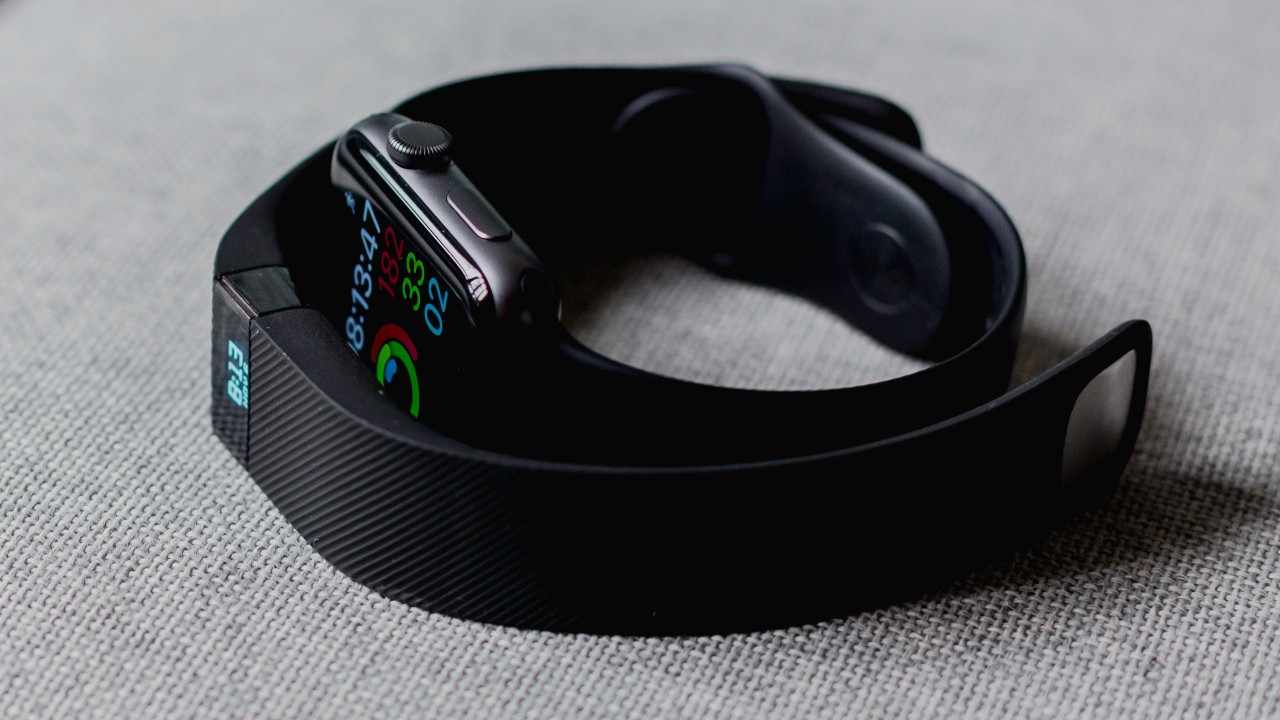Digital technology is all around us.
We use our smartphones to stay in touch, buy things, track appointments and monitor our health. ‘Google’ is a verb, and now the main way people get information. An increasing number of businesses are now ‘cashless’, choosing to take card or app payments. We can even access our medical records online.
The speed at which our lives have become digitised makes it a rich area for research. We don’t know how this hyperconnectivity will affect people in the long term. We also don’t know all the ways that digital technology might help - or harm - us.
Dr Lukasz Piwek’s research explores how we can use digital data to learn more about people.
’We’re all so heavily connected to this other, digital world that it’s crucial to know how it impacts us,’ says Lukasz.
Using tech for good
Lukasz’s interest in digital technology started long before he became an Associate Professor of Data Science at the School of Management.
’I’ve been fascinated with technology since I was a child reading science fiction books,’ says Lukasz. ’Around the time I was in university, technological development really started to accelerate. I was doing a psychology degree and started to realise the potential of the digital space to understand more about our behaviour’.
Lukasz wanted to understand how and why people interact with their digital devices, but also how to use this technology to improve lives.
His body of work spans various disciplines, including psychology, data science and health. Broadly speaking, his research explores how digital technology and society are being (and could be) shaped by each other. Though he focuses on the positive applications of digital data, Lukasz also recognises its potential for harm.
’My goal is to figure out how we can use this data to make humans happier, more productive, more healthy, and generally more satisfied - while also trying to understand the negative impacts in order to mitigate them’.
Rich data source
As a psychologist, Lukasz has spent his career trying to understand what makes people tick. He started out doing more traditional behavioural psychology work during his PhD in Glasgow. After this, he gradually shifted into the field of data science. This involves analysing information from ‘secondary sources' - in Lukasz’s case, data generated from our interactions with the digital world.
Lukasz explains that this type of data is often much richer and more interesting than that obtained from experiments.
’We call it more “ecologically valid”. This is data collected straight from the real world – from real people in real conditions. So it represents real behaviour as closely as it possibly can‘, says Lukasz.
Digital traces
We call this type of data digital traces - footprints that are left behind when we use any digital device, which create a picture of our lives.
’I perceive this data as a second layer to our reality. It can show us things about ourselves, that we aren’t even aware of,’ explains Lukasz. ’And collectively that data can tell us more about how society works.’
The beauty of digital traces is that they give us both a micro and a macro view of people. Analysing a person’s digital data gives us distinguishing information about an individual. With their consent, we can use this to address issues specific to them, like health.
But collecting and analysing the traces together generates a picture of how groups of people behave. This can be useful in many contexts, for example security. Lukasz is working with Bath colleagues to better understand how misinformation spreads and how people develop extreme views online.
Improving our health using digital data
Lukasz has done extensive research on the potential of ‘wearable trackers’ (like smart watches) to improve health by encouraging physical activity. These devices are inconsistent in their results. They work well for some people, helping them to change their behaviour permanently. Other people don’t respond, and their level of physical activity remains low. An early project investigated why these devices weren't always effective and how to improve their outcomes.
Lukasz is also interested in how wearable trackers might be used in ways other than improving fitness. In 2016 he published a paper on how wearables could be used as part of ’predictive preventive diagnostics’. It explored how we could use wearable trackers to predict medical. The device measured things like heart rate, stress and even fertility, generating a stream of data which told a story about the person’s health.
’This device would monitor specific physiological parameters. Smart algorithms collect this data and continuously monitor particular data points against known health norms, as well as the individual’s personal norms‘, says Lukasz.
’The AI would be almost like your smart health consultant that could give you small nudges or advice. This could be as simple as telling you your physical activity is a bit low to encourage you to exercise more and reduce risk of cardiovascular issues. But it could also potentially detect things like irregularity in your resting heart rate, that you may need to get checked out’.
This technology has huge potential. Products like this are emerging. The latest Apple Watch promises to ‘notify wearers of potential medical emergencies and offer valuable physiological insights to help prevent disease’.
Avoiding harm
But for all the potential good we can do with data, there is also the potential for harm. Lukasz worries about the security and privacy implications of recording our personal data.
Lukasz is well aware of this potential for harm. ’A lot of my work is trying to identify some of those problems before they emerge and become a more critical, a real problem,' he says.
Ethics in data science is an important and often controversial topic at the moment. Lukasz acknowledges that there’s a lack of boundaries.
’With any ‘traditional’ psychological study, we would get informed consent. This means we ask people, if they want to take part and we tell them broadly what's going to happen. Whereas if we’re using data from when they’re on Twitter and Facebook or engaging with other digital services, we haven’t necessarily got their consent. Where does that leave us?’
The other major strand of Lukasz’ research is on the methodological issues related to working with digital data. He studies the tools used to obtain data, the analytical methods used to process it, and the way we interpret it. He thinks by understanding the technology better, we can reduce the likelihood of it being used for harm.
Bad science
Data Science is a relatively new field, and digital technology is always evolving. There’s a lot of data out there, and Lukasz feels that some researchers misinterpret it and draw the wrong conclusions. For example, Lukasz takes issue with some research into computer games and smartphone use, which he considers ’scare mongering’.
’You hear reports of how computer games are affecting our children. How smartphones are having an impact on our productivity. But how certain are we about this? How do we know those things?’ says Lukasz. ’A lot of this research is quite anecdotal, based on the self-reports, and not on the type of solid hard data collection that you’d expect from a study on human behaviour.’
Lukasz wants to see better standards set for how research in this area is done, to ensure that the information they’re generating is solid. We won't be able to realise the full potential of this data – and protect against the negative impacts – until we have a genuine understanding of how we interact with digital devices, and the effect it has on us.
He hopes that this work will help demystify the world of digital technology and improve public understanding. This is especially important so people can better comprehend the value of the data they might be sharing with others.
’There’s strong resistance to solutions that use digital data. People don’t trust it. Scandals like Cambridge Analytica have made people suspicious of what’s going to happen to their personal information,’ says Lukasz.
Building trust requires better security, more sophisticated apps and more transparency so users have control over their data.
Lukasz believes that a large part of this is dependent on governments and companies setting regulations and behaving ethically. But ‘it’s also about researchers and engineers creating products that collect just the right amount of data to be useful, and not a single inch more’.
Just scratching the surface
Though the digitisation of our lives has the potential to harm, we can’t escape it. So Lukasz chooses to focus on better understanding this technology so we can use it for good.
’It’s not going away. It’s impossible to escape. So we have to focus on turning it to our advantage,’ says Lukasz.
There’s no shortage of research to be done in this area. We’re making new discoveries and uncovering new uses for digital data all the time, but as Lukasz puts it ’we’re just scratching the surface’.



